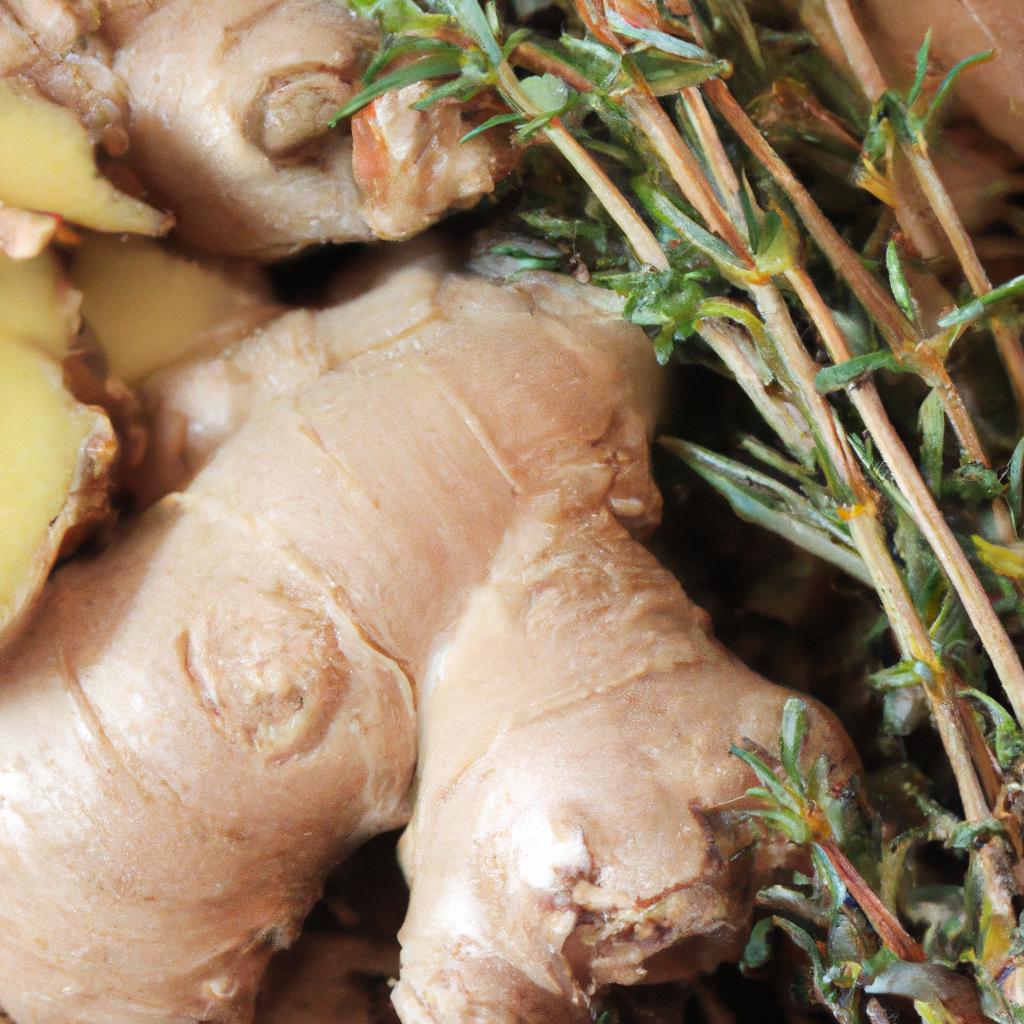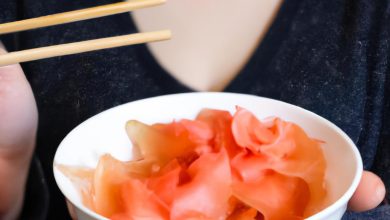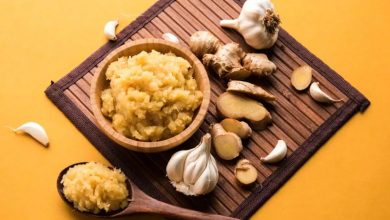Ginger Thyme Tea Benefits: A Natural Remedy for Improved Health

Are you tired of relying on over-the-counter medication to alleviate common health issues? Have you considered the benefits of herbal tea, specifically ginger thyme tea? In this article, gingerfacts.com will explore the various health benefits of ginger thyme tea and how you can incorporate it into your daily routine.
Ginger thyme tea is a blend of two powerful herbs, ginger and thyme, that work together to improve your overall health. Not only is it a delicious and refreshing beverage, but it also offers numerous health benefits that can improve your quality of life.
Herbal tea has been used for centuries as a natural remedy for various health issues. Unlike conventional medicine, herbal tea can provide relief without the risk of harmful side effects. Ginger thyme tea, in particular, has gained popularity due to its ability to provide relief from a variety of ailments.
As we continue to prioritize our health and well-being, it’s important to consider the benefits of natural remedies such as ginger thyme tea. By incorporating this herbal tea into your routine, you can improve your overall health without the risk of harmful side effects. So, let’s explore the benefits of ginger thyme tea and how you can begin incorporating it into your daily routine.
Ginger Thyme Tea Basics

Ginger and thyme are two herbs that have been used for centuries for their medicinal properties. Ginger is known for its anti-inflammatory and digestive benefits, while thyme is believed to have antibacterial properties that can help improve respiratory health.
When combined, ginger and thyme create a powerful blend that can provide a wide range of health benefits. Ginger thyme tea works by stimulating the body’s natural healing mechanisms, providing relief from various health issues.
Description of Ginger and Thyme
Ginger is a root that is commonly used in cooking and traditional medicine. It has a spicy, pungent flavor and is known for its anti-inflammatory properties. Ginger contains compounds called gingerols and shogaols, which have been shown to reduce inflammation and alleviate pain.
Thyme is an herb that is commonly used in cooking and is known for its aromatic flavor. It is also believed to have antibacterial properties that can help improve respiratory health. Thyme contains compounds called thymol and carvacrol, which have been shown to have antimicrobial properties.
How the Two Herbs Work Together
When combined, ginger and thyme create a potent blend that can provide numerous health benefits. Ginger works by reducing inflammation in the body, while thyme helps to improve respiratory health. Together, these herbs can provide relief from various health issues, including cold and flu symptoms, digestive issues, and stress and anxiety.
Preparation of Ginger Thyme Tea
To make ginger thyme tea, you will need fresh ginger root, fresh thyme leaves, and water. Begin by peeling and slicing the ginger root into thin pieces. Next, add the ginger and thyme leaves to a pot of boiling water and let it steep for 10-15 minutes. Strain the mixture and enjoy your warm and soothing ginger thyme tea.
By incorporating ginger thyme tea into your daily routine, you can experience the numerous health benefits that these two herbs have to offer. So, brew yourself a cup of ginger thyme tea and start enjoying the healing properties of this delicious herbal tea.
Health Benefits of Ginger Thyme Tea

There are numerous health benefits associated with ginger thyme tea. This powerful herbal blend can provide relief from a variety of ailments, ranging from cold and flu symptoms to digestive issues. Let’s take a closer look at some of the benefits of ginger thyme tea.
Relief from Cold and Flu Symptoms
Ginger thyme tea is an excellent natural remedy for cold and flu symptoms. The anti-inflammatory properties of ginger and thyme can help to reduce inflammation in the respiratory tract, providing relief from coughing, congestion, and sore throat. Additionally, the immune-boosting properties of ginger thyme tea can help to shorten the duration of cold and flu symptoms.
Boosting the Immune System
Ginger and thyme are both known for their immune-boosting properties. Ginger contains compounds that can help to stimulate the immune system, while thyme contains high levels of antioxidants that can help to protect against illness and disease. By incorporating ginger thyme tea into your daily routine, you can help to support your immune system and prevent illness.
Anti-inflammatory Properties
Inflammation is a natural response to injury or infection, but chronic inflammation can lead to a variety of health issues. The anti-inflammatory properties of ginger and thyme can help to reduce inflammation throughout the body, providing relief from a variety of health issues such as arthritis, asthma, and even cancer.
Digestive Health Benefits
Ginger is well-known for its ability to soothe digestive issues such as nausea, bloating, and indigestion. Thyme, on the other hand, can help to stimulate the production of digestive enzymes, aiding in the digestion of food. The combination of these two herbs in ginger thyme tea can provide significant digestive health benefits.
Stress and Anxiety Relief
Ginger thyme tea can also provide relief from stress and anxiety. The calming properties of thyme can help to reduce feelings of anxiety and promote relaxation, while the anti-inflammatory properties of ginger can help to reduce the physical symptoms of stress.
Improved Respiratory Health
Finally, ginger thyme tea can help to improve respiratory health. The anti-inflammatory properties of ginger and thyme can help to reduce inflammation in the respiratory tract, providing relief from conditions such as asthma and bronchitis. Additionally, the immune-boosting properties of ginger thyme tea can help to prevent respiratory infections.
Nutritional Value of Ginger Thyme Tea

Analysis of Nutrients Found in Ginger and Thyme
Ginger and thyme are both nutrient-dense herbs that provide a range of health benefits when consumed. Ginger contains several bioactive compounds such as gingerol and shogaol that have anti-inflammatory and antioxidant properties. Thyme, on the other hand, contains thymol, carvacrol, and rosmarinic acid, which have antifungal, antibacterial, and antioxidant properties.
When combined to make ginger thyme tea, these herbs create a powerful blend that is packed with nutrients. Ginger thyme tea contains essential vitamins and minerals such as vitamin C, vitamin B6, folate, iron, and calcium. It is also rich in antioxidants that help protect the body against damage caused by free radicals.
Explanation of How These Nutrients Benefit the Body
The nutrients found in ginger thyme tea offer a range of health benefits. Vitamin C, for example, plays a crucial role in immune system function and helps protect the body against infections and diseases. Vitamin B6 is essential for brain development and helps regulate mood and behavior. Folate is important for cell growth and development, while iron is necessary for the formation of red blood cells.
Calcium, which is also found in ginger thyme tea, is essential for bone health and helps prevent osteoporosis. The antioxidants found in ginger and thyme help protect the body against oxidative stress, which can lead to chronic diseases such as cancer, heart disease, and diabetes.
Comparison of Ginger Thyme Tea to Other Popular Herbal Teas
While there are many types of herbal teas available, ginger thyme tea stands out due to its high nutritional value and unique blend of herbs. Other popular herbal teas such as chamomile, peppermint, and green tea offer their own unique health benefits, but none provide the same combination of nutrients as ginger thyme tea.
In summary, ginger thyme tea is a nutrient-dense herbal tea that offers a range of health benefits. By consuming this powerful blend of herbs, you can improve your overall health and protect your body against chronic diseases.
How to Incorporate Ginger Thyme Tea into Your Routine
Are you interested in incorporating ginger thyme tea into your daily routine? Fortunately, there are several simple ways to enjoy this herbal tea and reap its numerous health benefits. Here are some tips for incorporating ginger thyme tea into your routine:
Tips for Incorporating Ginger Thyme Tea into Your Daily Routine
- Start your day with ginger thyme tea: Brew a cup of ginger thyme tea in the morning to start your day off right. Not only will it provide a refreshing boost of flavor, but it will also help to boost your immune system and improve your overall health.
- Substitute ginger thyme tea for your afternoon coffee: If you’re looking for a healthy alternative to your daily coffee fix, try swapping it out for a cup of ginger thyme tea. Not only will it provide a similar energy boost, but it will also help to reduce stress and improve your overall well-being.
- Drink ginger thyme tea before bed: The calming properties of ginger thyme tea make it the perfect beverage to enjoy before bed. Not only will it help you relax and unwind, but it will also improve your sleep quality and help you wake up feeling refreshed.
Recipes for Ginger Thyme Tea-Infused Drinks and Dishes
Looking for a unique way to enjoy the flavor and health benefits of ginger thyme tea? Here are some recipes for ginger thyme tea-infused drinks and dishes:
- Ginger Thyme Tea Smoothie: Blend together a cup of brewed ginger thyme tea, a frozen banana, a handful of spinach, and a scoop of protein powder for a healthy and delicious breakfast smoothie.
- Ginger Thyme Tea Lemonade: Mix together a cup of brewed ginger thyme tea, the juice of one lemon, and a tablespoon of honey for a refreshing and hydrating lemonade.
- Ginger Thyme Tea Rice: Replace the water in your rice cooker with brewed ginger thyme tea for a flavorful and healthy twist on traditional rice.
Precautions and Potential Side Effects
While ginger thyme tea is generally considered safe for most people, there are some precautions and potential side effects to keep in mind. Ginger thyme tea may interact with certain medications, so it’s important to speak with your doctor before incorporating it into your routine. Additionally, drinking too much ginger thyme tea may cause stomach upset or heartburn. As with any new supplement or medication, it’s important to start with a small amount and monitor your body’s response.
Conclusion
In conclusion, ginger thyme tea is a natural and effective way to improve your health. By blending two powerful herbs, ginger and thyme, this herbal tea offers numerous health benefits, including relief from cold and flu symptoms, improved digestion, stress and anxiety relief, and respiratory health benefits.
Incorporating ginger thyme tea into your daily routine is easy and can be done in a variety of ways. You can enjoy a warm cup of tea in the morning, add it to your favorite smoothie, or even use it in your cooking.
As we continue to prioritize our health and wellness, it’s important to consider natural remedies such as ginger thyme tea. By incorporating this herbal tea into your routine, you can improve your overall health and well-being.
At Ginger Facts, we are committed to providing you with the latest information on the benefits of ginger and other natural remedies. We encourage you to try ginger thyme tea for yourself and experience the numerous health benefits it has to offer.
Conclusion: So above is the Ginger Thyme Tea Benefits: A Natural Remedy for Improved Health article. Hopefully with this article you can help you in life, always follow and read our good articles on the website: gingerfacts.com




